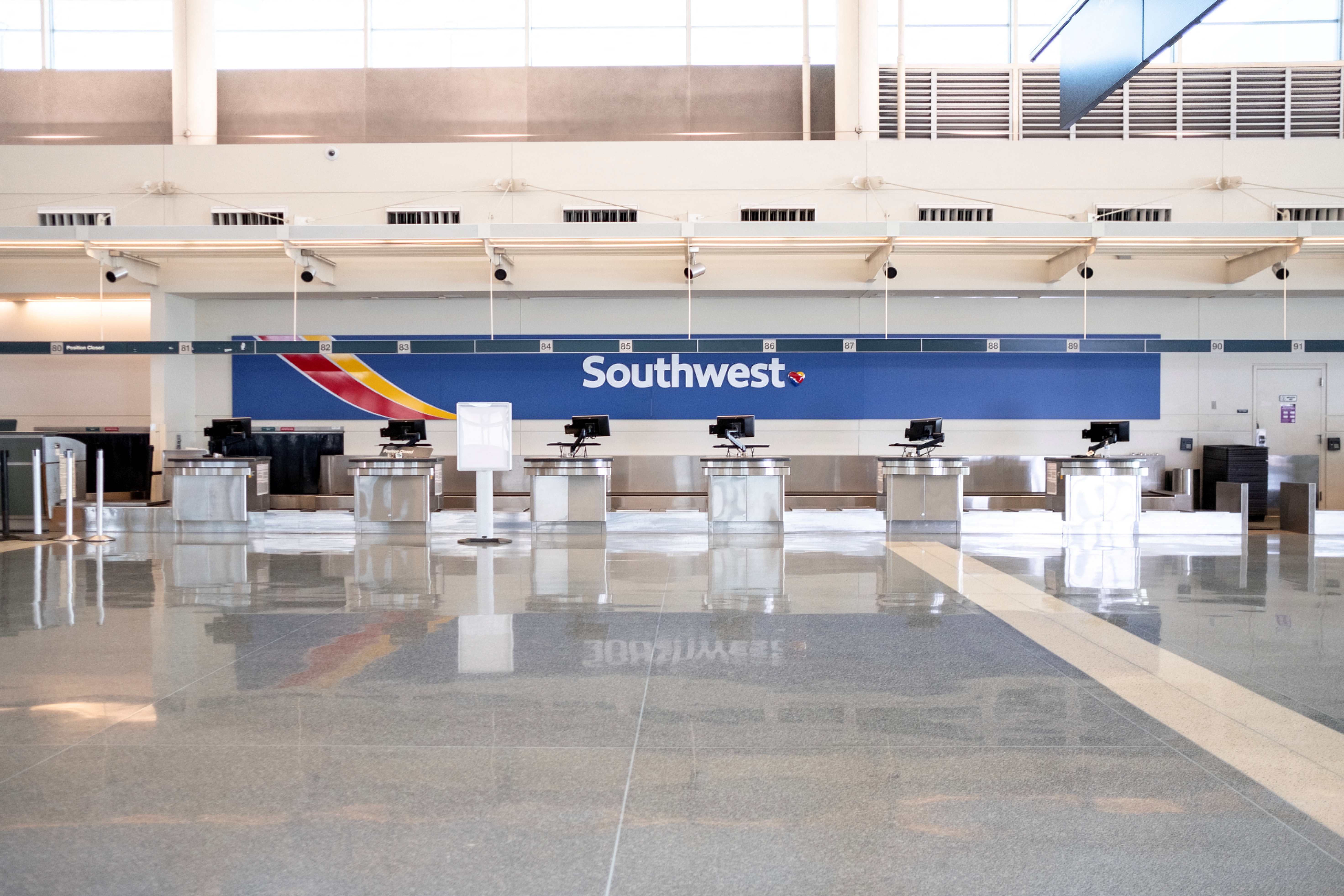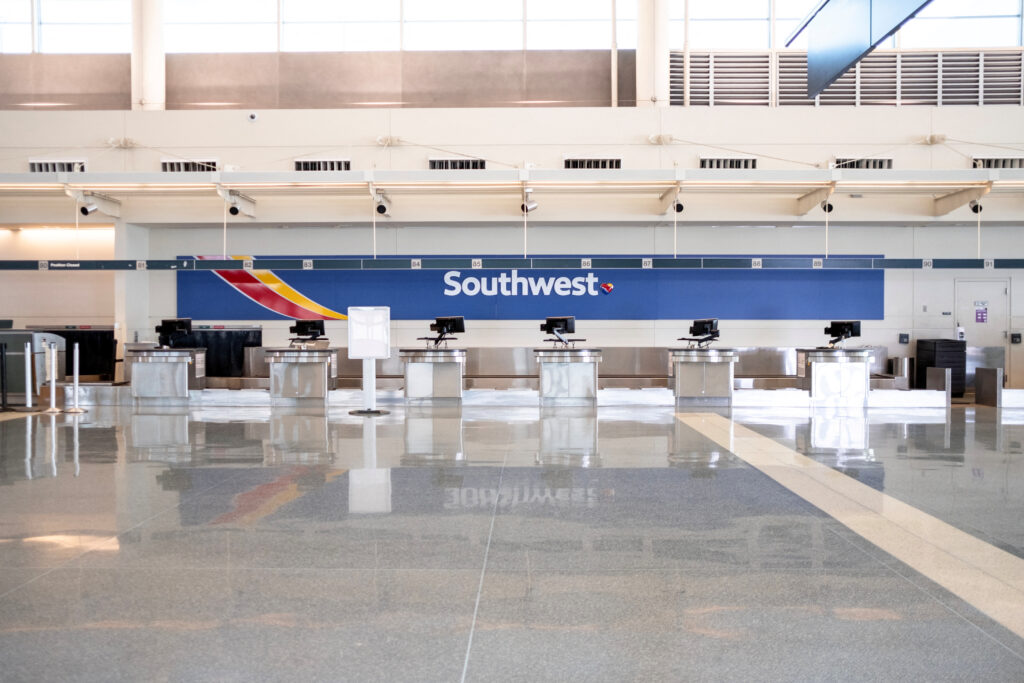
A Southwest Airlines check-in area sits empty after Southwest Airlines flights resumed following the lifting of a brief nationwide stoppage caused by an internal technical issue, according to the U.S. Federal Aviation Authority (FAA), at Chicago Midway International Airport in Chicago, Illinois, U.S. April 18, 2023. REUTERS/Jim Vondruska
Aug 12 (Reuters) – The U.S. Federal Aviation Administration (FAA) and National Transportation Safety Board said on Saturday they were investigating a near collision between a Southwest Airlines (LUV.N) Boeing 737 and a Cessna Citation 560X business jet in San Diego, the latest in a series of troubling U.S. aviation incidents.
The FAA said its preliminary review shows that just before 12 p.m. Pacific Daylight Time (1900 GMT) on Friday, an air traffic controller at San Diego International Airport cleared the Cessna to land on a certain runway even though Southwest Airlines Flight 2493 had already been told to taxi onto the same runway and await instructions to depart.
The facility’s automated surface surveillance system alerted the controller about the developing situation and the controller directed the Cessna to discontinue landing.
A person briefed on the matter said the initial review shows the Cessna passed over the top of the Southwest airplane by about 100 feet. The FAA is sending a team to the facility to investigate.
Southwest said on Saturday it is participating in the FAA’s review of the incident. “Our aircraft departed without event and the flight operated normally, with a safe landing in San Jose as scheduled,” the airline said.
The National Transportation Safety Board is investigating seven runway incursion events since January, including Friday’s San Diego incident.
A similar near-collision incident occurred in February in Austin, Texas, when a FedEx (FDX.N) cargo plane and a Southwest Boeing 737 came within about 115 feet (35 meters) in poor visibility conditions. The controller had cleared the FedEx plane to land and the Southwest plane to depart.
On Thursday, the NTSB cited the failure of a Lear 60 charter pilot to get a takeoff clearance in a February incident in Boston that resulted in a near-collision with a JetBlue (JBLU.O) flight.
The NTSB said the airport surface detection equipment issued an alert, and the air traffic controller gave go-around instructions to the JetBlue flight.
The JetBlue Embraer 190 was just 30 feet (9.1 m) above ground when it broke off the landing “close to the point where both runways intersected,” the NTSB said, adding the Boston tower told the charter pilot the JetBlue flight passed about 400 feet above them.
In March, the FAA said it was taking steps to improve its air traffic control operations after near-miss incidents telling employees: “There is no question that we are seeing too many close calls.”
The FAA held a safety summit and issued a separate safety alert in March to airlines, pilots and others citing the “need for continued vigilance and attention to mitigation of safety risks.”
Reporting by David Shepardson in Washington
Editing by Andrew Heavens, Matthew Lewis and Raju Gopalakrishnan
: .


